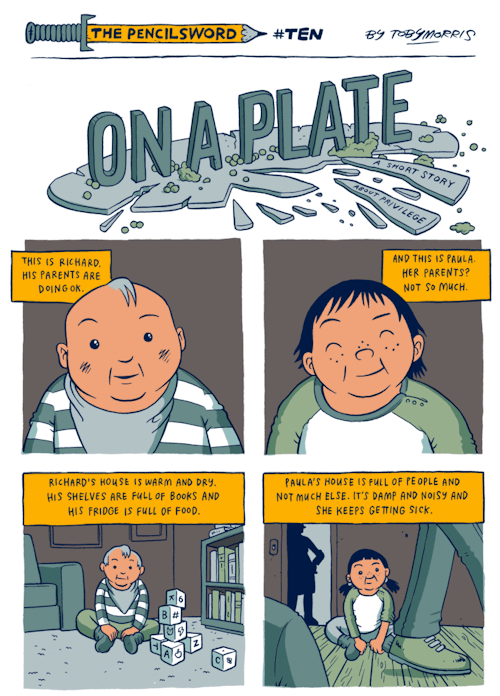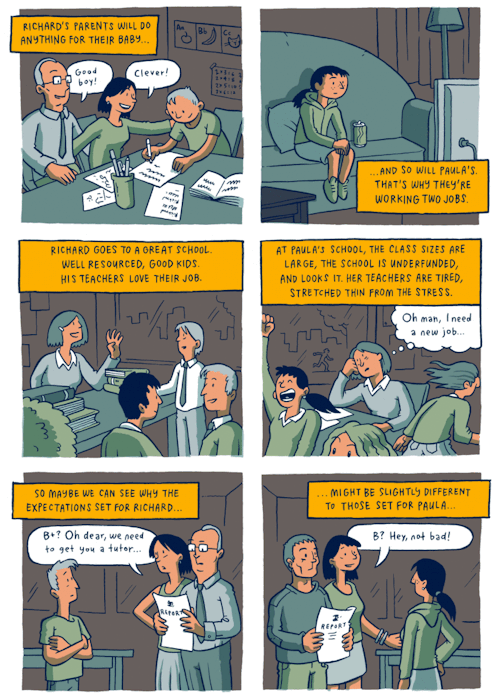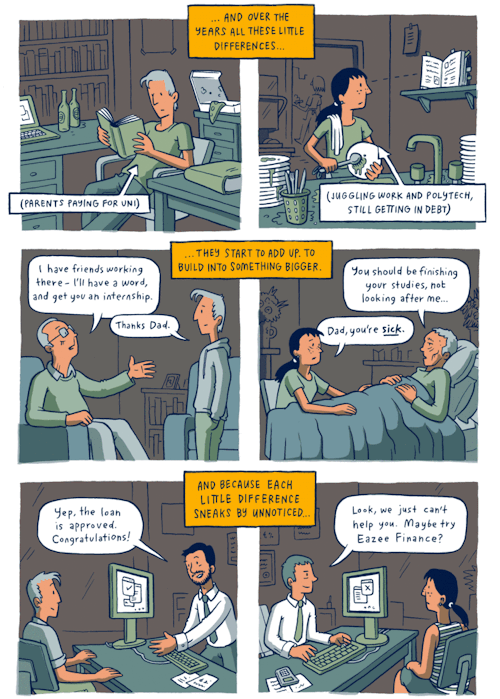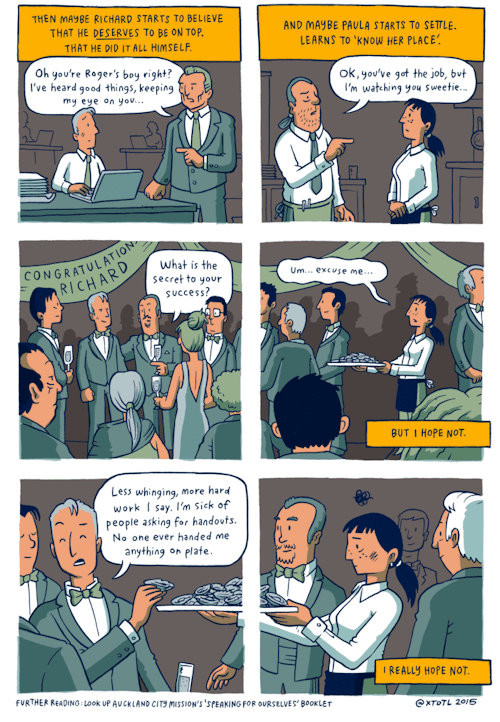I Hate When Ppl Act Like The Only Reason To Not Like A "sad" Ending Is Because You Can't Take It Or Whatever.
i hate when ppl act like the only reason to not like a "sad" ending is because you can't take it or whatever. personally as a tragedy enjoyer, i hate a poorly written ending. i hate an ending that is just kind of a bummer. i hate an ending that feels mean-spirited to the audience. i hate an ending that's redundant. i love a sad ending that is thematically consistent, poignant, and bespoke to the rest of its narrative.
More Posts from Ealdwineoldfriend and Others
one of my favorite things to do in limited perspective is write sentences about the things someone doesn't do. he doesn't open his eyes. he doesn't reach out. i LOVE sentences like that. if it's describing the narrator, it's a reflection of their desires, something they're holding themselves back from. there's a tension between urge and action. it makes you ask why they wanted or felt compelled to do that, and also why they ultimately didn't. and if it's describing someone else, it tells you about the narrator's expectations. how they perceive that other person or their relationship. what they thought the other person was going to do, or thought the other person should have done, but failed to. negative action sentences are everything.
Me: *writes an amazing chapter*
Me: Ah yes. That is amazing. Can't wait to begin the next one. So many possibilities!
Me: *turns off my laptop and goes into a month-long depression*
yup, it's all a joke to me...
among the most enduring lessons i have ever received in screenwriting stands this one from glenn gordon caron…
(glenn created and ran the wildly successful, long-running “medium” - on which i worked for two seasons as co-executive producer - as well as one or two other things that have… you know… shaped the very face of popular culture as we know it)
…a legendarily tough grader who likes to do his master-level work without a lot of noisy fuss and bluster (and probably dislikes being singled out for public praise like this) glenn would set the table for every one of our story pitches to him with a single, and deceptively simple, request:
“tell it to me like it’s a joke.”
now, “medium” was several things - among them, one of tv’s best portrayals of a messy but functional marriage, as well as a crime procedural dotted with representations of unspeakable violence, usually perpetrated by serial killers in the psychic visions of its lead character - but “barrel of laughs” is most likely not in the top ten descriptors for that series…
…so how did “tell it to me like it’s a joke” fit into the equation?
a joke - for my money - is to storytelling what haiku is to poetry: the shortest possible distillation of formal intent. a set-up, brief development, and a punch line…
…short, sweet — and, if successfully told, climaxing in an explosive, involuntary emotional response.
for a story to work in any genre, every successful element from the macro to the micro - from the sweep of the story, to the shape of individual scenes, the arcs of the characters, and the very structure of individual lines of dialogue - should be reducible to the specific outlines of a joke.
set up, development, punch line.
as you have guessed by now, the punch line doesn’t have to be funny - it can be horrific (as it often was on “medium”) or tear-inducing, or a twist that sends the story into an unexpected direction - but it is the nexus toward which the set up and development need to work in absolute concert - there’s no room for fat on a joke, only specificity of purpose.
to this day, the “tell it to me like it’s a joke” principle guides me through story and scene development like a trusty compass: if you can tell your story in the most concise way possible and still deliver your emotional punchline, then all the adornments will fall into line as needed.
“tell it to me like it’s a joke” is neither a formula nor a cure all - it’s a test: if your concept survives on the “tell it to me like it’s a joke” touchstone, then at least you know that the gross anatomy is in place… there are still a thousand ways to mess it up, to be sure, but the airframe will fly - so long as you outfit it with all the necessary equipment.
you wanna know my favorite joke?
an aimless young artist is recruited by an organization that fights monsters… while at first she dislikes her employer and considers him a stuffed shirt, she ultimately finds in him the father she never had.
I’m writing scenes which are good, and I don’t know where they are going to fit in the book. But it’s what I call ‘The Valley Filled With Clouds’ technique. You’re at the edge of the valley, and there is a church steeple, and there is a tree, and there is a rocky outcrop, but the rest of it is mist. But you know that because they exist, there must be ways of getting from one to the other that you cannot see. And so you start the journey. And when I write, I write a draft entirely for myself, just to walk the valley and find out what the book is going to be all about.
-- Terry Pratchett - A Slip Of The Keyboard: Collected Non-fiction
ohsweetcrepes replied to your post: Also. ALSO.
This essay. I would like to read it.
“Incremental Perturbation: How to Know Whether You’ve Got a Plot or Not” by John Barth. I don’t know if it’s available online, but I read it in Creating Fiction (ed. Julie Checkoway), which is a book I highly recommend after having read about a third of its essays.
And here comes my plug for this book, because I’ve been arguing with every book but this one this semester, and I feel like it deserves some love.
Creating Fiction also contains the essay “The Lingerie Theory of Literature: Describing and Withholding, Beginning and Ending” by Checkoway, which uses Victoria’s Secret catalogues to demonstrate how much detail you need in a story, and “Icebergs, Glaciers, and Arctic Dreams: Developing Characters” by Kim Edwards, which is just an all-around fantastic examination of characterization. I think it’s out of print, but you can get it for under $10 used or as a Google ebooks download.
thinking about how the world would be better if more people understood the differences between 'the author failed to tell the story they wanted to tell' and 'the author told the story they wanted to tell, but they told it badly' and 'the author told the story they wanted to, and they told it well, but it wasn't the story I wanted to read'
thinking non-stop about the Terry Pratchett Method of Deconstruction (TM) and how it works
[...] the wages of sin is death, but so is the salary of virtue, and at least the evil get to go home early on Fridays. (Witches Abroad)
Take a common concept, metaphor, idiom, trope etc. "The wages of sin is death."
Invert, reverse or subvert it to highlight the inconsistency or issue. "But so is the salary of virtue." (Well, actually, everybody dies, right?)
While everybody's contemplating the philosophy revealed, overextend the metaphor and whack them in the back of the head with the joke like a comedic quintain while they aren't expecting it. "At least the evil get to go home early on Fridays."
He does it quite often and I love it every time.
Time For Some Extremely Important Reading Homework, North Americans
Some of these books you may have already read. A refresher never hurts, though, if you have the time.
1.

It Can't Happen Here - Sinclair Lewis. Historical Fiction, 1930s USA.
2.

The Book Thief - Markus Zusak. Historical Fiction, Nazi Germany.
3.

Parable of the Sower - Octavia E Butler. Dystopian speculative fiction.
4.

Fahrenheit 451 - Ray Bradbury. Dystopian sci-fi.
5.

The Handmaid's Tale - Margaret Atwood. Dystopian fiction.
6.

On Tyranny: Twenty Lessons from the Twentieth Century - Timothy Snyder. Non-fiction.
Leave further suggestions in the comments! What else should I/we read?




The Perfect Explanation of Privilege – In One Powerful Punchline
“The Pencilsword” is a comic strip by Toby Morris, an illustrator from New Zealand. His most recent comic, “On a Plate” hits hard at the heart of the issues of concerning wealth and privilege.
How many times have you heard the “I’ve never been handed anything on a platter” argument in regard to social security and other social benefits?
Toby wrecks this argument by showing how two children can grow up, be loved and supported, and yet still have two very different outcomes.
Make sure to follow all the way to the end for the powerful punchline. This comic is an increasingly sad reality for far too many of this nation’s children and families.
-
 h3rs reblogged this · 1 month ago
h3rs reblogged this · 1 month ago -
 luxaii reblogged this · 1 month ago
luxaii reblogged this · 1 month ago -
 luxaii liked this · 1 month ago
luxaii liked this · 1 month ago -
 entcmologist reblogged this · 1 month ago
entcmologist reblogged this · 1 month ago -
 ziusik liked this · 1 month ago
ziusik liked this · 1 month ago -
 iceswordsupremacy reblogged this · 1 month ago
iceswordsupremacy reblogged this · 1 month ago -
 gaylittleeldritchhorror liked this · 1 month ago
gaylittleeldritchhorror liked this · 1 month ago -
 sunnyhouseplant reblogged this · 1 month ago
sunnyhouseplant reblogged this · 1 month ago -
 shadow-pixelle reblogged this · 1 month ago
shadow-pixelle reblogged this · 1 month ago -
 kestr3l liked this · 1 month ago
kestr3l liked this · 1 month ago -
 hazel-core liked this · 1 month ago
hazel-core liked this · 1 month ago -
 entropical87 reblogged this · 1 month ago
entropical87 reblogged this · 1 month ago -
 bayeis reblogged this · 1 month ago
bayeis reblogged this · 1 month ago -
 bayeis reblogged this · 1 month ago
bayeis reblogged this · 1 month ago -
 occhiolysm reblogged this · 1 month ago
occhiolysm reblogged this · 1 month ago -
 illiteratehusky liked this · 1 month ago
illiteratehusky liked this · 1 month ago -
 stanestreet liked this · 1 month ago
stanestreet liked this · 1 month ago -
 2009impala liked this · 1 month ago
2009impala liked this · 1 month ago -
 softbodiedleglesslarva liked this · 1 month ago
softbodiedleglesslarva liked this · 1 month ago -
 spookside reblogged this · 1 month ago
spookside reblogged this · 1 month ago -
 justanotherc0g reblogged this · 1 month ago
justanotherc0g reblogged this · 1 month ago -
 wall2468 reblogged this · 1 month ago
wall2468 reblogged this · 1 month ago -
 yuyubake reblogged this · 1 month ago
yuyubake reblogged this · 1 month ago -
 yuyubake liked this · 1 month ago
yuyubake liked this · 1 month ago -
 midorizawa reblogged this · 1 month ago
midorizawa reblogged this · 1 month ago -
 ragedorito reblogged this · 1 month ago
ragedorito reblogged this · 1 month ago -
 sacrosanctitty reblogged this · 1 month ago
sacrosanctitty reblogged this · 1 month ago -
 creacher-feetcher reblogged this · 1 month ago
creacher-feetcher reblogged this · 1 month ago -
 humblefun reblogged this · 1 month ago
humblefun reblogged this · 1 month ago -
 humblefun liked this · 1 month ago
humblefun liked this · 1 month ago -
 loonyle reblogged this · 1 month ago
loonyle reblogged this · 1 month ago -
 glitter-stained liked this · 1 month ago
glitter-stained liked this · 1 month ago -
 usuallylaconic reblogged this · 1 month ago
usuallylaconic reblogged this · 1 month ago -
 bananasmiles2952 liked this · 1 month ago
bananasmiles2952 liked this · 1 month ago -
 stealin-your-harts liked this · 1 month ago
stealin-your-harts liked this · 1 month ago -
 mineashthetrash liked this · 1 month ago
mineashthetrash liked this · 1 month ago -
 deepestfirepeace liked this · 1 month ago
deepestfirepeace liked this · 1 month ago -
 bay-leeeef liked this · 1 month ago
bay-leeeef liked this · 1 month ago -
 pioggia-di-notte liked this · 1 month ago
pioggia-di-notte liked this · 1 month ago -
 ammonitetheseaserpent liked this · 1 month ago
ammonitetheseaserpent liked this · 1 month ago -
 hunter216 liked this · 1 month ago
hunter216 liked this · 1 month ago -
 floral-atom-collective liked this · 1 month ago
floral-atom-collective liked this · 1 month ago -
 creacher-feetcher liked this · 1 month ago
creacher-feetcher liked this · 1 month ago -
 fallenrain40 reblogged this · 1 month ago
fallenrain40 reblogged this · 1 month ago -
 fallenrain40 liked this · 1 month ago
fallenrain40 liked this · 1 month ago -
 s0r3wach1gauy0 liked this · 1 month ago
s0r3wach1gauy0 liked this · 1 month ago -
 neriumoleander reblogged this · 1 month ago
neriumoleander reblogged this · 1 month ago -
 orkestrell liked this · 1 month ago
orkestrell liked this · 1 month ago -
 hallowjuice liked this · 1 month ago
hallowjuice liked this · 1 month ago -
 cheeryp liked this · 1 month ago
cheeryp liked this · 1 month ago

I write things sometimes. she/her, but I'll take whatever pronouns suite the bit
103 posts



